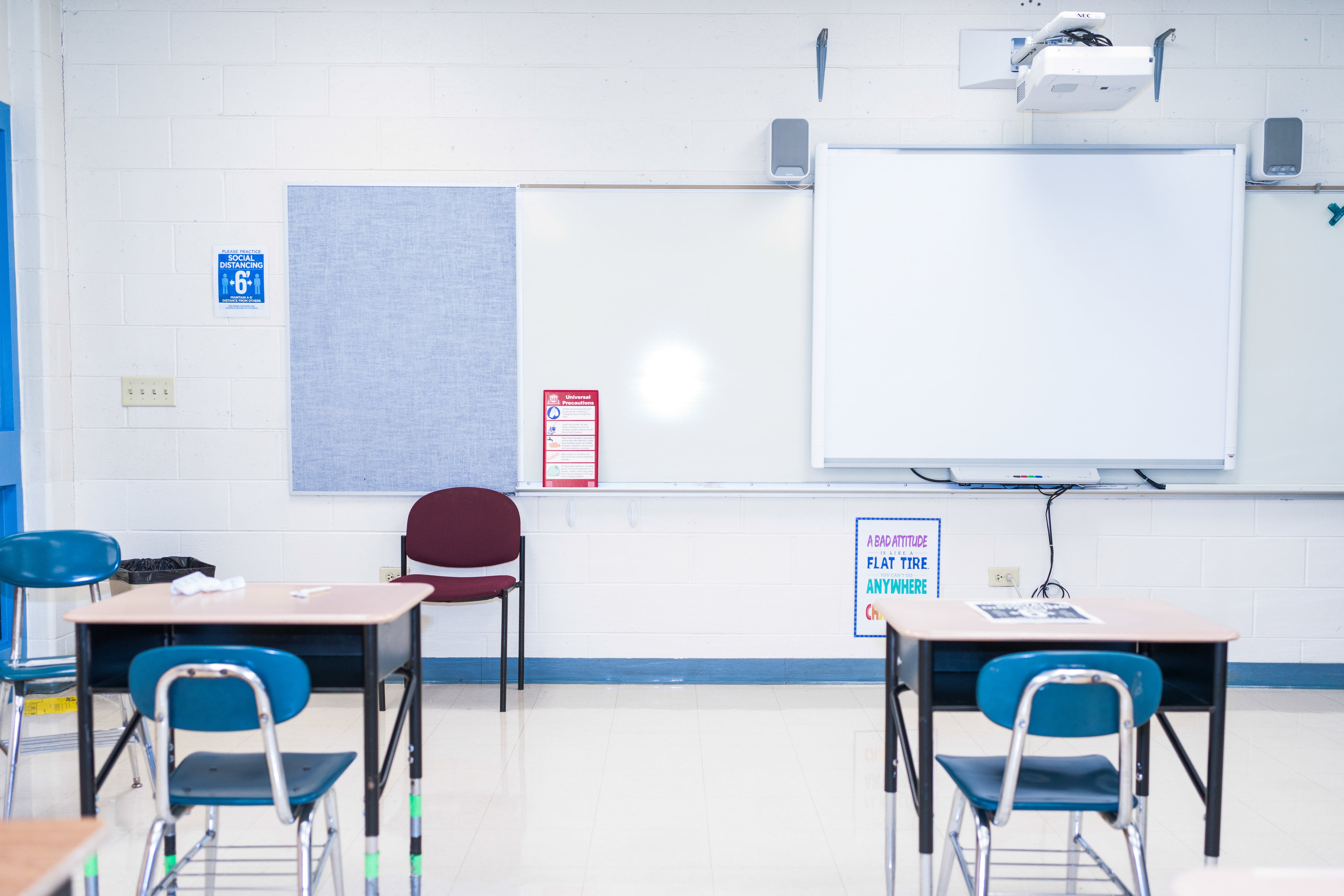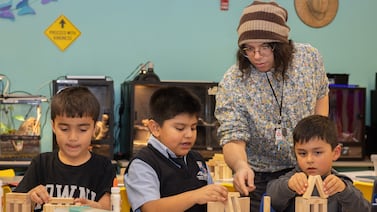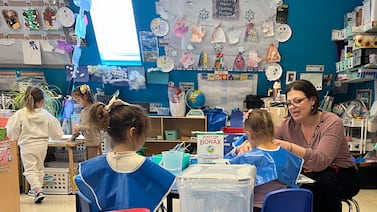This is the second of a two-part series. Read part one here.
A South Bronx elementary school is launching a first-of-its-kind program in New York City to integrate students with emotional disabilities with their general education peers.
The pilot, called “Path,” will prioritize social-emotional learning for a single kindergarten classroom at P.S. 88, where 16 general education students will learn alongside four children who are classified with emotional disturbance, or ED. Together, the students will learn from two teachers who have been professionally trained on trauma-informed practices and therapeutic approaches to support kids in regulating their emotions and behavior.
The program is based on ASD Nest, an inclusive model where certain students on the autism spectrum learn alongside their typically developing peers. That specialized program started at a Brooklyn school in 2003 and has since expanded to include 57 elementary, middle, and high schools across the city.
“We’ve seen so much success with our specialized programs, particularly for students on the spectrum,” said Christina Foti, deputy chief academic officer for special education. “We wanted to look at opportunities for our students with emotional disabilities to thrive in inclusive settings.”
If successful, the Path program could help fill a placement gap for students with ED by providing an inclusive option where teachers are trained to support students who have experienced trauma.
ED is one of the 13 classifications that make a student eligible for an IEP, or an individualized education program, which describes the services a student with disabilities should receive. About 10,000 of the city’s roughly 200,000 students with an IEP are designated as having “emotional disturbance.” Students with this classification often struggle to control their behavior and manage their emotions.
Overwhelmingly, students of color receive that classification: 49% of such students are Black and 38% are Latino, according to education department data for the 2018-19 school year.
Some advocates say the label can be stigmatizing and is particularly problematic when applied largely to students of color. There’s a push underway for the state to change the name of the classification.
Special education experts have said that students classified with emotional disturbance — many of whom come from low-income families and have experienced significant trauma — do not always receive the support they need to do well in school. Some 38% of students with ED are placed in District 75, which serves students with disabilities who require more support than a regular district school can typically provide. But such placements might be inappropriate for many kids labeled ED, advocates say, particularly if the student is not below grade level.
“Most of the students with the [ED] classification are on grade level,” said Lori Podvesker, a policy expert at includeNYC, an advocacy organization that focuses on special education. “Yet many of these kids with this classification are educated in District 75, which is highly segregated.” (The programs tend to be segregated in terms of ability since children in these programs rarely mix with general education students.)
In an integrated classroom setting, meanwhile, teachers can have difficulty teaching engaging with students with ED who sometimes lack impulse control, have high levels of depression or show oppositional behavior.
Education officials did not yet specify whether and how the Path program might expand after the end of the pilot year. The program, developed through a partnership between the city’s education department and New York University, is paid for through a $510,000 grant from the New York Community Trust through the Fund for Public Schools. (New York Community Trust is a funder of Chalkbeat.)
Program officials suggested that the trauma-informed practices they find successful may eventually be replicated at other schools.
“I really think that actually the goal for this program is for it to be what all schools aspire to be and what all families want for their children,” said Elise Cappella, an NYU professor of applied psychology who has helped lead the pilot.
Although the pilot takes place in one classroom, all teachers at P.S. 88 are currently undergoing a training program, said Cappella. Teachers learn, among other tools, Bounce Back, a school-based intervention for elementary students who have experienced stressful and traumatic events. The intervention teaches coping skills to students and families. Teachers are also learning strategies to work with families and to set up a classroom environment that would support students with ED.
P.S. 88 was selected to pilot the Path program because District 9 has a high concentration of students with ED as well as students in temporary housing.
“We think this model, with such an emphasis on social and emotional development of children and an emphasis on trauma-informed teaching would benefit this district,” said Foti.
She added that P.S. 88 in particular was chosen because it has sufficient space to accommodate the program and a leader who is committed to inclusivity. The tiny early childhood elementary school only serves about 80 children from kindergarten through third grade.
Administrators at P.S. 88 are in the process of selecting the students to participate in the pilot. Through open houses, families are learning about the program and will be able to decide whether they’d like to opt in.





